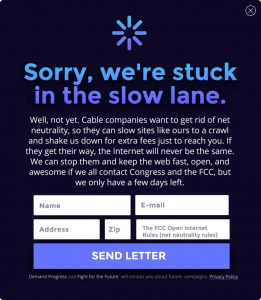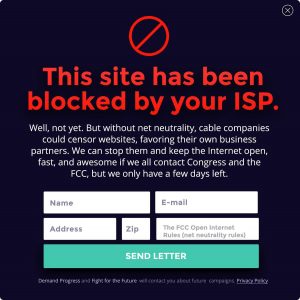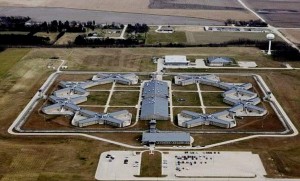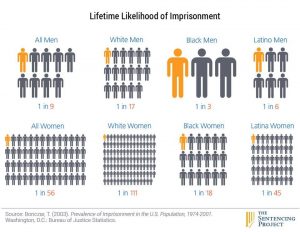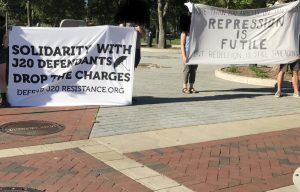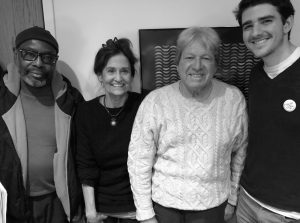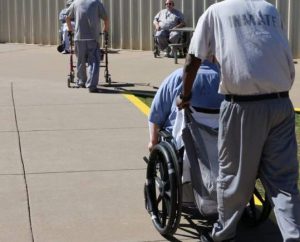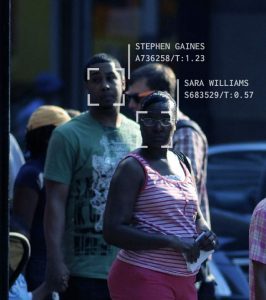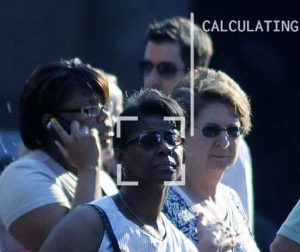Welcome to Law and Disorder Radio
Law and Disorder is a weekly independent civil liberties radio program airing on more than 150 stations and on Apple podcast. Law and Disorder provides timely legal perspectives on issues concerning civil liberties, privacy, right to dissent and practices of torture exercised by the US government and private corporations.
Law and Disorder December 4, 2017
Podcast: Play in new window | Download
Law and Disorder Editorials:
- Jared Kushner Middle East Policy Advisor
—-
Free Press: New FCC Rules On Net Neutrality
The Federal Communications Commission recently released a plan to do away with landmark regulations ensuring equal access to the Internet. They pave the way for Internet service companies to charge the public higher rates to see certain content and to even deny access to some websites.
The proposal was made by the FCC chairman, Ajit Pai, an opponent to regulation in general. Pai is the former Associate General Counsel for Verizon Communications, Inc.
The proposal is expected to be approved in mid-December. In his first year Pai, who was appointed by Donald Trump, has already eliminated numerous regulations. The agency has stripped down rules governing TV broadcasters, newspapers and telecom companies designed to protect the public interest. In addition to the net neutrality rollback, the chairman announced a plan to eliminate a rule limiting any corporation from controlling broadcasts that can reach more than 39 percent of American homes.
In a broad brushstroke, the new proposal repeals rules put in place by the Obama administration that prohibit high-speed internet service providers, or I.S.P.s, from slowing down or even stopping the delivery of websites. The Obama rules prevent companies from charging customers extra fees for high-quality streaming and other services. These former rules were drafted to preserve the principle commonly known as “net neutrality” and to prevent practices that would created tiers of access to the Internet.
The plan to repeal existing rules that were passed in 2015 would reverse a hallmark decision by the agency to consider broadband a public utility, as essential to modern lives as phones and electricity. The earlier decision created the legal foundation for the current rules and underscored the importance of high-speed internet service.
Guest – Attorney Gaurav Laroia, Policy Counsel at Free Press. Before joining Free Press, he worked at the Government Accountability Project protecting the rights of national security whistleblowers.
—-
The United States of America imprisons more of its citizens both in absolute numbers and as a percentage of the population than any other country in the world. Only China comes close. On any given day 2,300,000 Americans are in jail or prison, 70% of them are non-white.
Former Alabama senator Jefferson Beauregard Sessions wants these numbers to rise. He has instructed federal prosecutors to prosecute people for the most serious possible crime and to demand the longest possible sentence.
In the last 30 years the number of people in jail and in prison have skyrocketed by factor of five. Prosecutors are increasingly demanding life sentences without the possibility of parole. Judges have lost their discretion with the implementation of maximum minimum sentencing. The long-term impact of mass incarceration has been devastating, especially to black communities.
Attorney General Sessions has stated that there is “a dangerous permanent rise”
in violent crime, despite FBI data showing a sharp decline in the last 20 years. He has falsely charged that crime increases have been caused by immigrants and that prosecutorial policy under Obama caused crime to increase.
Guest – Marc Mauer, the Executive Director of the Sentencing Project and a central figure in the justice reform movement. The Sentencing Project is a Washington DC based research and advocacy group working to reduce the use of incarceration in the United States and to address racial disparities in the criminal justice system.
Follow Heidi Boghosian on Twitter – @HeidiBoghosian
Law and Disorder November 27, 2017
Podcast: Play in new window | Download
Last January, at Donald Trump’s Inauguration, over 230 people—some protesters, some not—were trapped and arrested by police. Federal prosecutors charged them with a crime that actually doesn’t exist in DC: “felony rioting.” Armed with secret warrants, prosecutors then probed deeply into the defendants’ personal lives.
Charges were dropped for some arrestees, including journalists and legal observers. Over 200, however, saw their charges increased to felony rioting, felony incitement to riot, conspiracy to riot, and property-damage crimes related to broken windows. Each defendant is facing over 60 years in prison.
Prosecutors obtained warrants focused on anti-Trump organizers. Warrants sought a list of visitors to a protest-related website and the Facebook friends and related communications of two organizers, the host of a coalition Facebook page, and those who had “liked” that page.
This prosecution follows a change in local law enforcement’s response to protest that we covered years ago on Law and Disorder. The mass arrests and harsh charges are precisely what new DC policies were designed to avoid. A 2002 mass-arrest and subsequent lawsuit by the Partnership for Civil Justice resulted in the District paying over $10 million in settlements and changing its crowd control policies.
Trials for the inauguration protesters begin mid-November and are expected to continue for a year.
Guest – Yael Bromberg, Yael is a supervising attorney and teaching fellow with the Institute for Public Representation at the Civil Rights Clinic of Georgetown University Law Center. defendj20resistance.org
—-
October Song: Bolshevik Triump, Communist Tragedy 1917-1924
This year marks the 100th anniversary of the Russian Revolution of October, 1917. The revolution changed the course of history and determined world politics internationally and in the United States of America for most of the 20th century, until finally, under the unrelenting onslaught of the west and principally the USA, the revolution was overthrown in 1991 when capitalism was restored to that country.
Before the revolution, Russian was a feudal monarchy, headed up by a czar in a country where most of the population were peasants working the land under near slave-like conditions.
World War I started in 1914 and Russia allied with France and Great Britain against Germany and other countries. It was a war for foreign markets, resources, and colonies. By 1917, 30 million people have been killed. In one week alone 250,000 soldiers died.
The Russian revolution was nearly bloodless and nonviolent. The first thing the revolutionary government did was to end their country’s participation in the war, which ultimately ended the war.
The second thing they did was to redistribute the land to the peasants who worked it. Then they nationalized industry under control of the workers in the plants. Thus, the 1% of the Russian elite were dispossessed and the 99% took control of the institutions of their country and ran them through councils of workers and peasants and soldiers, which had been organized prior to the revolution and which were led by socialists.
The Russian revolution inspired the hopes of humankind throughout the industrial and under-developed colonial world. The peasants were given land, women gained equal rights and the right to vote and to get an abortion. Homosexualty was made legal. Minority rights were guaranteed. Education, the arts, and culture received government support. For a period Russia was the most democratic country on the planet.
We speak today with history professor Paul LeBlanc about the Russian revolution and the lessons it teaches for social change activists in America today.
Guest – Professor Paul LeBlanc is the author of the just published book October Song: Bolshevik Triumph, Communist Tragedy, 1917-1924. He is the author of a number of widely read studies including Lenin and the Revolutionary Party and Marx, Lenin, and the Revolutionary Experience. He teaches at Laroche college in Pittsburgh.
Follow Heidi Boghosian on Twitter – @HeidiBoghosian
Law and Disorder November 20, 2017
Podcast: Play in new window | Download
Law and Disorder Editorials:
- FDA Approves Digital Pill by Heidi Boghosian
—-
Release Aging People in Prison Campaign
The number of persons 50 years and older in New York State has risen more than 98% since 2000; it now exceeds 10,000—nearly 20% of the total incarcerated population. This reflects a national crisis in the prison system and the extension of a culture of revenge and punishment into all areas of our society.
The organization Release Aging People in Prison, or RAPP, works to end mass incarceration and promote racial justice by getting elderly and infirm people out of prison.
Led by Mujahid Farid, a 2013 Soros Justice Fellow who was incarcerated for 33 years in New York before his release in 2011, RAPP focuses on aging people in prison, many of whom are long-termers convicted of serious crimes. Many of these human beings have transformed their lives and developed skills and abilities they lacked before incarceration. They could be released from prison with little or no threat to public safety. Yet many are denied release, often for political reasons, and they needlessly remain imprisoned into old age. These elders could return to their communities if current mechanisms such as parole and compassionate release were correctly utilized. We also support legislation in New York to correct the parole system and increase the number of releases.
Guest – Mujahid Farid co-founded the Prisoners AIDS Counseling and Education program and helped design prison-based sociology and theology courses that allowed others to earn college-credited in prison. He also earned four college degrees and other certifications while incarcerated, including his paralegal certificate, NYS Department of Labor Certificate in Human Development Counseling, and NYC Department of Health Certificate in HIV/AIDS Counseling.
—-
Guest – David George, Associate Director of RAPP. In the last few years Dave has organized with and on behalf of currently and formerly incarcerated people, including at the Osborne Association and Correctional Association of New York.
—-
Perpetual Line Up: Unregulated Police Face Recognition In America
The presence of surveillance cameras across the United States has enabled targeted facial recognition surveillance at essentially any place and any time. Each day law enforcement puts in place more and more cameras, including CCTV cameras, police body cameras, and cameras on drones and other aircraft. The FBI’s Next Generation Biometric Identification Database and its facial recognition unit, FACE Services, can search for and identify nearly 64 million Americans, either from its own databases or through access to state DMV databases of driving license photos.
It’s likely that government agencies will soon be able to pinpoint your location and even with whom you’ve been, just by typing your name into a computer.
The release of Apple’s IPhone X has drawn scrutiny to this technology. Despite civil liberties and privacy concerns, there are few limits on facial recognition technology. In March 2017 Congress held a hearing to discuss the risks of facial recognition surveillance. There is concern that facial recognition can be used to get around existing legal protections against location tracking, opening the door to unprecedented government monitoring an logging of personal associations, including protected First Amendment-related activities. Knowledge of individual’s political, religious and associational activities could lead the way to bias, persecution and abuse.
As with many technological advances, there are benefits, too. Facial recognition can assist in locating missing persons or for other public safety purposes.
Guest – Clare Garvie, Clare is a Law Fellow at the Georgetown Law Center on Privacy and Technology. Her research with the Center is on face recognition use by law enforcement and the disparate impact of payday lending on vulnerable communities. She worked on the Center’s 2016 report on facial recognition technology.
